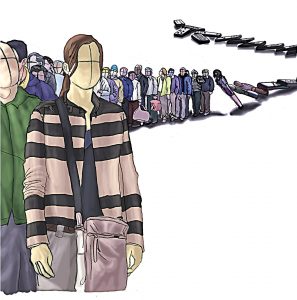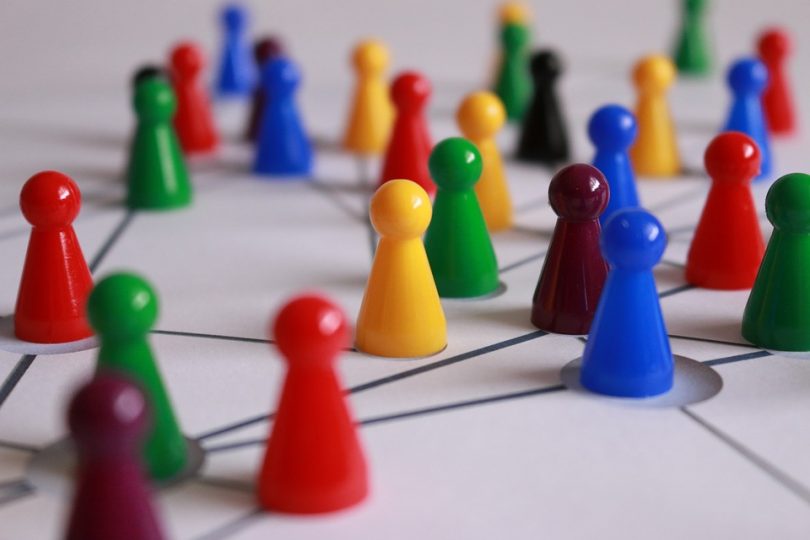Domino effect
We often think of journalists as the voices of people. They expose the truths and challenge those whose power and position most affect citizens. Journalists have the power to tell stories, make editorial judgements out of various evidence. And in many cases, journalism can create a domino effect.
“A domino effect or chain reaction is the cumulative effect produced when one event sets off a chain of similar events.” – Wikipedia’s definition.
You’ve probably observed it in real life too. Frankly, it’s so common that the other day when I was in a public restroom in Melbourne Central station. There were 3 bathroom stalls: 2 were still working, 1 was out of order.
I and a friend were queuing like everyone else. I occupied one stall and my friend who is obsessively clean, went into the other stall and came back out with an expression of disgust on her face. She then decided to resist the call of mother nature.
Here’s what’s interesting! Everyone else in the queue did the same thing without checking if the stall is alright to use or not. So now, only 1 stall out of 3 is serving that long queue. Curious to see what’s in that stall, I peaked inside. And guess what? The toilet was in good condition and totally did not deserve the discrimination.

Reproduced from Pixabay | EdgarCurious Brisbane Australia
That doesn’t mean people are sheep. They just want to avoid the unpleasant experience, anchored by my friend previously.
Future journalism
However, this example of human psychology cannot represent future journalism. From the 2017 predictions of journalism, the role of storytelling might belong to the citizens themselves.
Guy Raz – my favourite radio host at NPR predicted that the feelings people get from the news will push them to “seek out inspiration, meaning and a reasoned exchange of ideas”.
With the technology tool box, the average person now works like a journalist. They have their own sphere of people who are interested to read their stories everyday on social media.

Reproduced from Pixabay | TeroVesalainen Finland
We are capable of telling our own stories, making them public, assessing information and decide what to ignore or pass on. We comment, share, like, write blogs and make videos. Being an active consumer of news rather than passive. Questioning rather than following.
According to Kawandeep Virdee – a creative technologist, sites will realise the need for expressions and develop more functions to allow 2-way conversations. Take Youtube as an example, everyday we see new influencers who used to be audiences. And frankly, they are building mansions from Youtube revenues.
Is it good or bad?
Does that threaten the job of journalists? I think not. Journalists can find many sources of information faster and easier. Basically, you can track someone down with an internet search and whoof!…their profile tells a lot about them. Ideally, we can engage people and gain their trust.
Read my previous blog post about Journalism in the Digital Age here

